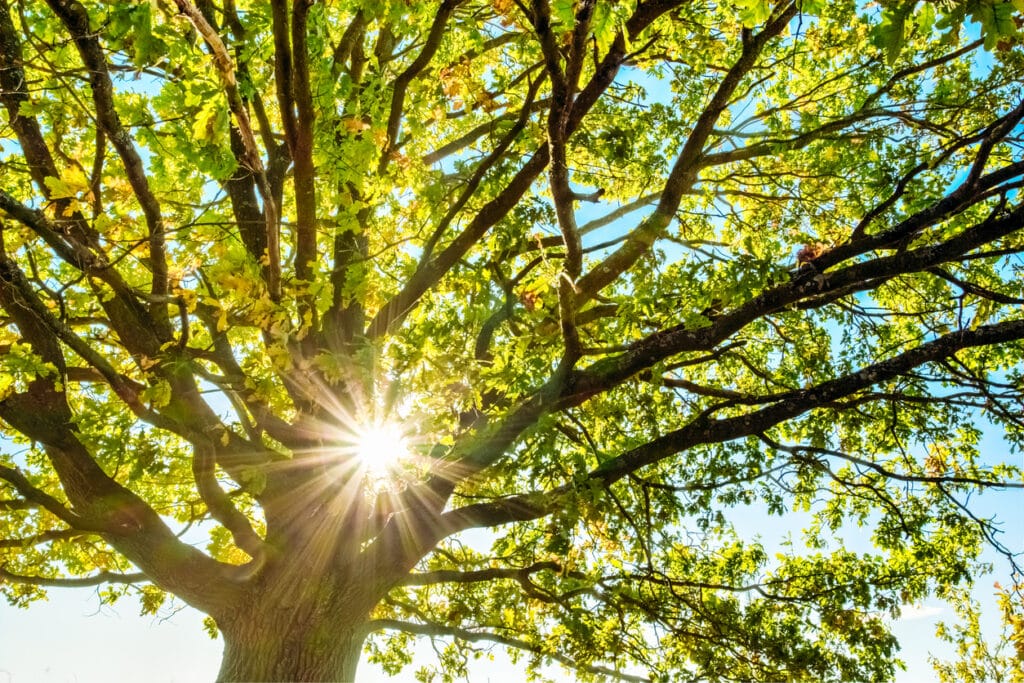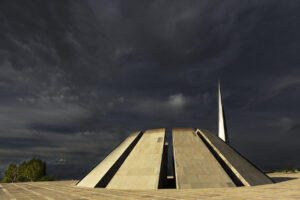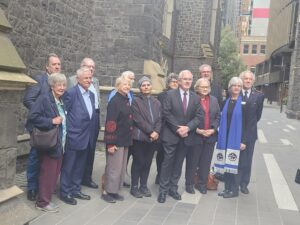
Philip Hughes
22 September 2024
One of the delights about living in Australia is the wide range of amazing animals, plants and landscapes on and around our continent. There are colourful birds, animals that exhibit extraordinary behaviours, exquisitely adapted insects and reptiles, and breathtaking landscapes. Our tropical rainforests, eucalypt woodlands, grasslands, and wetlands are all enchanting places to visit because they are so varied and are home to an amazing variety of life. Our mountains, rivers, oceans, and deserts all have something to add to the richness and experience of life and often provoke a sense of awe at why they should exist and why they should be so varied, enchanting, and often mysterious. Many of us will have a favourite natural place to visit, or a particular plant or animal that reminds us of the creator who made it all possible.
However, on closer examination, there is increasing awareness that Australia’s natural environment is not faring well. Some mammal, bird, frog, plant, and reptile species have become extinct in recent decades and many others are now endangered. Our climate is changing, our oceans are warming and becoming more acidic, and forests and woodlands are disappearing. Many parts of God’s creation are now degraded or lost because of our actions.
The federal government’s recent State of the Environment report announced that the state of Australia’s environment was poor and deteriorating, a result of increasing pressures from climate change, habitat loss, invasive species, pollution and resource extraction.
Read more: Card game engages Christians in climate action
When Anglicans recite the creeds, participate in liturgy, read Scripture, and pray we affirm our belief that God is the creator of everything, and that this universe belongs to God and is sustained by Christ.
Our obedience to God, through the combination of our spiritual and physical lives, should therefore contain elements of caring for what God has created. We should contemplate whether our environment is just the scenery and resources for our lives, or whether our physical environment truly matters to the way we live as Anglicans.
Confronted by the worldwide threats to God’s creation the bishops of the Anglican Communion assembled at the 2022 Lambeth Conference launched the Communion Forest, as part of the church’s response to the current environmental crises.
The Communion Forest is an opportunity for people across the Anglican Church to engage in practical aspects of creation care such as renewing, protecting, and restoring parts of the natural environment. It is a practical, spiritual, and symbolic response to the current environmental and biodiversity crises and is an act of Christian hope for all God’s creation including humanity.
Archbishop of Canterbury Justin Welby encouraged Anglicans to join in the initiative, saying to plant is to hope, to protect is to love, and to restore is to heal – to share in God’s reconciling work in all creation.
Read more: ‘We need to act urgently, we need to raise our ambitions’: Climate action week
Many members of the Anglican Communion have wholeheartedly responded to the challenge of caring for God’s creation. For example, a revegetation program was initiated in the Solomon Islands, fruit trees planted in South Africa and Papua New Guinea, mangrove forests restored in Mozambique and the Philippines, blessing of an ecological sanctuary in Brazil, a planting and stewardship initiative in Canada, planting trees for special occasions in Malawi, and nature protection in El Salvador are just some of the initiatives implemented by Anglicans.
In Australia, the Diocese of Gippsland committed the land of The Abbey at Raymond Island to be part of the Communion Forest. The Abbey welcomes all people to a place where they can reflect on their spiritual life while immersed in the beauty of God’s creation.
There are many opportunities for Australian Anglicans to care for God’s creation by participating in the Communion Forest whether by planting a single tree or engaging in a landscape project. Maybe there is some land at your school, campsite, around church buildings, or in your neighbourhood that could be nurtured by your community.
As the Australian provincial representative, I would like to invite you to take part in the Communion Forest scheme because every single tree counts as a blessing from God.
You can find out more about the Communion Forest here: communionforest.org.
Philip Hughes is the Australian provincial representative to the Anglican Communion Environmental Network.
For more faith news, follow The Melbourne Anglican on Facebook, Instagram, or subscribe to our weekly emails.







